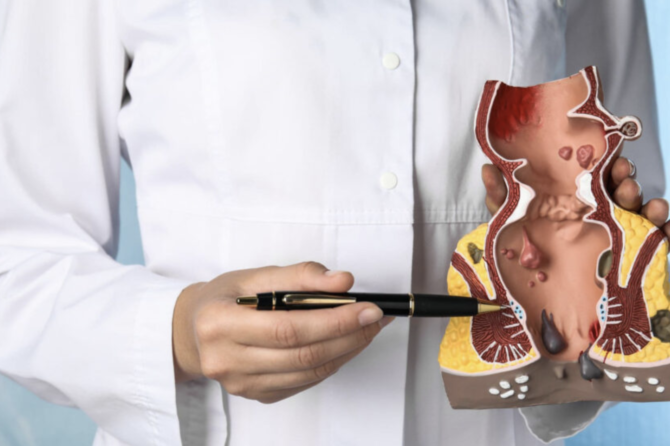
Anal Diseases Seen During Pregnancy and Postpartum
Pregnancy and childbirth bring about many physical changes in the body. These changes affect not only the abdomen and muscular structure but also the anal region directly.
So, which anal conditions are common during and after pregnancy? Which symptoms should be taken seriously? When should you see a doctor?
Here’s everything you need to know during this sensitive period:
Why Do Anal Diseases Increase During Pregnancy?
There are several main reasons why anal disorders become more frequent during pregnancy:
- Hormonal Changes: Pregnancy hormones cause dilation in the vessel walls, paving the way for hemorrhoid formation.
- Increased Intra-Abdominal Pressure: The growing uterus compresses pelvic veins, impairing blood flow.
- Constipation: Hormonal slowing of bowel movements and iron supplements contribute to constipation.
- Straining During Delivery: Excessive pushing during vaginal delivery can damage the anal region.
Most Common Anal Conditions During Pregnancy
Hemorrhoids
The most frequently seen anal condition in pregnant women. Characterized by swelling, itching, and occasional bleeding around the anus.
📌 Tip: Pregnancy-related hemorrhoids often regress after delivery. Persistent cases should be treated.
(See our hemorrhoid page for more.)
Anal Fissure (Tear)
Tears caused by hard stools, leading to sharp pain and bleeding after defecation.
(See our anal fissure page for more.)
Anal Abscess
A weakened immune system during pregnancy increases infection risk. Symptoms include severe pain, swelling, and redness around the anus.
📌 If not treated promptly, it may turn into a fistula. (See our anal abscess page for details.)
Anal Warts (Condylomas)
Caused by HPV; may grow rapidly due to hormonal shifts during pregnancy.
Postpartum Anal Problems
Most postpartum issues are linked to strain during delivery:
- Postpartum Hemorrhoids: Pushing during delivery may worsen existing hemorrhoids or cause new ones.
- Episiotomy-Related Issues: Incisions during birth can extend toward the anal area, causing healing difficulties.
- Fecal Incontinence: Rare, but may occur due to severe tearing.
Which Symptoms Should Be Taken Seriously?
Seek medical attention immediately if you experience:
- Severe, unbearable anal pain
- Persistent bleeding after bowel movements
- Prolonged swelling or hardness
- Non-healing wounds or discharge
- Sudden swelling and heat in the anal area (sign of abscess)
Treatment of Anal Diseases During and After Pregnancy
Treatment depends on severity and type:
Home Care:
- Warm sitz baths
- High-fiber diet and hydration
- Light exercise to improve circulation
Medications:
- Safe local creams and pain relievers approved for pregnancy
- Anti-inflammatory medications under medical supervision
Surgical & Laser Methods (Postpartum):
- Minimally invasive laser procedures for hemorrhoids, fissures, or fistulas that don’t resolve after childbirth.
(See our laser hemorrhoid treatment page for more.)
Treatment at Avrupa Cerrahi During and After Pregnancy
Avrupa Cerrahi understands the delicate nature of pregnancy and postpartum.
Our experienced proctology team applies treatment protocols specifically tailored to pregnant women and new mothers.
This ensures both the mother’s health and a faster recovery.
📞 Contact us here to speak with our expert team and get detailed information.
Frequently Asked Questions (FAQ)
Will hemorrhoids go away on their own after pregnancy?
Yes, in most pregnancies, they resolve within a few weeks postpartum. Persistent cases may require treatment.
When should I see a doctor for postpartum anal fissure?
If pain lasts more than a week, or if bleeding persists or worsens, consult a doctor.
What can I do at home for anal swelling during pregnancy?
Take sitz baths, stay hydrated, and avoid constipation. If symptoms worsen, see a doctor.

Leave a reply